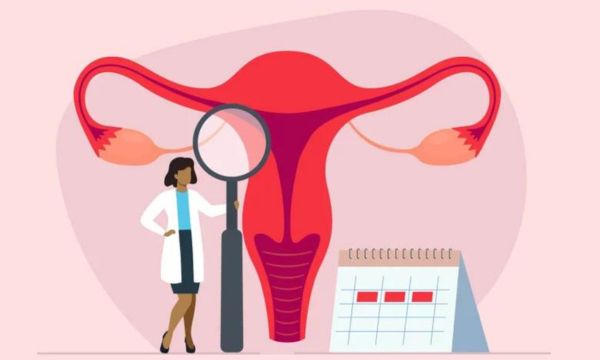Women’s Mental Health: Nurturing Well-Being in Every Season of Life
In today’s fast-paced world, the importance of mental health cannot be overstated. Women in particular face issues that are unique to them and can have a significant impact on their health. From work and family stress to social pressure and hormonal changes, women face many things that can negatively impact their mental health. In this article, we discuss the most important components of women’s mental health and provide tips for promoting emotional health at any age.
Ad
Understanding the Challenges:
There are many things that can cause women stress and negatively impact their mental health. These things are:
1. Career and Goals
Many women want to do well at work and take care of their families at the same time. Trying to excel at work can sometimes lead to burnout and stress.
2. Being a Mother
Becoming a mother is a wonderful journey, but it also has challenges. Postpartum sadness, lack of sleep, and the constant need to care for a baby can take a toll on a mother’s mental health.
3. Hormonal Changes
Mood swings and worries can be caused by hormonal changes during menstruation, pregnancy and menopause. It is important to understand these changes and get the help you need.
4. Social Expectations
It can be difficult to live up to society’s standards of beauty, success, and greatness. This pressure can make people feel like they are not good enough and can damage their self-esteem.
Promote Women’s Mental Health:
While challenges exist, there are things women can do to take care of their mental health:
1. Take Good Care of Yourself
Taking care of yourself is not selfish; it is important. Women should put themselves first and do things like meditate, exercise, read, or just take time to relax.
2. Ask for Help
Don’t be afraid to ask for help when you need it. Some ways to do this are to talk to friends, family, or a mental health professional who can help and listen.
3. Set Rules and Boundaries
Burnout can be prevented by setting clear boundaries in your personal and professional life. Learning to say “no” when necessary is a great way to maintain good mental health.
4. Education
Understanding the hormonal changes that occur throughout a woman’s life can help her prepare and respond appropriately. Knowledge makes people stronger.
5. Celebrate Our Shortcomings
No one is perfect and it is important to accept your shortcomings. It’s okay to make mistakes and find out what went wrong.
Help and Community:
For women’s mental health, building a support group is just as important as what you do yourself. Emotional strength can come from social connections and a sense of belonging. Joining a women’s group, online forum or support group can help people feel part of society and be understood.
An Integrated Approach to Women’s Mental Health:
To further improve women’s mental health, it is important to approach all aspects of life in a balanced way:
1. Food and Exercise
A healthy diet and regular exercise are not only important for physical health, they also have a major impact on mental health. When you eat right and exercise, your mood improves, your stress decreases, and your overall health improves.
2. Consciousness and Meditation
Mindfulness exercises and meditation can help women cope with worries and fears. These practices can help people become more self-aware, calm down, and maintain emotional stability.
3. Job Satisfaction
Career goals can be difficult to achieve, but they can also be a lot of fun. Women need to find a balance that allows them to achieve their goals and passions while putting their mental health first.
4. Help for Families
It is important that family members talk openly and honestly. Partners, children, and other family members can help women with their mental health care in important ways. Families can become closer together by encouraging conversations and working together to seek help when needed.
5. Seek Help from Professionals
There is no shame in seeking help from a professional for your mental health. Therapists, counselors and psychologists can provide helpful advice and different treatments based on people’s needs.
What does Education Do?
The way women’s mental health is discussed is also heavily influenced by schools, workplaces and the media. Raising awareness, reducing stigma and giving women the tools can make it easier for them to get help and talk about their mental health.
Policies and Initiatives:
Women’s mental health initiatives at policy level are important. Governments, organizations and healthcare systems must prioritize women’s mental health by allocating resources and developing policies. This could include things like making mental health care more accessible, changes in the workplace and education programs.
Conclusion:
In summary, a woman’s mental health is an important part of her overall health and has many different facets. It is important to recognize and address the unique issues women face throughout their lives. By encouraging self-care, seeking help, and taking a personalized approach to mental health, women can excel at every stage of their lives. Establishing support groups, encouraging change at all levels, and eradicating stigma are all important steps in creating a better future in women’s mental health. Together we can create a world where every woman feels strong, capable and mentally healthy. This not only helps them overcome life’s challenges, but it also helps them grow.
FAQs:
1. What is women’s mental health?
Women’s mental health refers to women’s emotional, psychological and social well-being. It addresses their unique experiences, challenges and the impact factors such as hormonal changes, social expectations and life events on their mental health.
2. What common mental health challenges do women face?
Women can experience a range of mental health issues, including anxiety, depression, postpartum blues, eating disorders and mood swings related to hormonal changes during menstruation, pregnancy and menopause.
3. How do women prioritize mental health?
Women can prioritize their mental health by practicing self-care, seeking support from friends, family or professionals, setting boundaries, staying physically active, practicing mindfulness and seeking treatment if necessary.
4. What impact does social pressure have on women’s mental health?
Social expectations regarding beauty, success and perfection can lead to stress, low self-esteem and mental health problems in women. Challenging and redefining these expectations is critical to promoting healthier mental health.
5. How can I support women with mental health problems?
If someone you care about is struggling with mental health issues, provide a non-judgmental ear, encourage them to seek professional help if necessary, and be patient and empathetic. Creating an environment of support and understanding is critical.
 Demystifying the Menstrual Cycle: What You Need to Know
Demystifying the Menstrual Cycle: What You Need to Know
The menstrual cycle is a normal biological process that most women experience from puberty to menopause. Although […]
More Understanding Women’s Health: A Comprehensive Guide
Understanding Women’s Health: A Comprehensive Guide
Women’s health is a vast and complex topic that encompasses physical, emotional, and social well-being. It is […]
More Your Pregnancy Journey: From Conception to Birth
Your Pregnancy Journey: From Conception to Birth
Bringing a baby into this world is a beautiful and life-changing event. Your pregnancy journey is unique […]
More